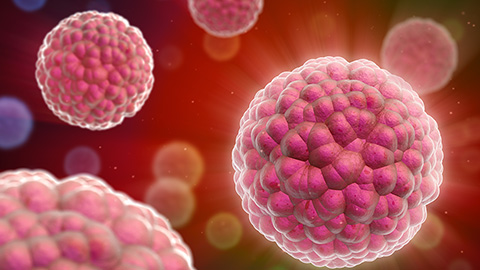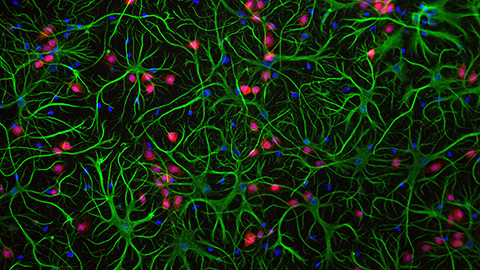Maternal diet’s effects on liver disease in offspring
More than half of people who become pregnant are overweight or obese at the time of conception, and obesity during pregnancy is associated with progeny who develop metabolic syndrome later in life.
Studies of humans and mammalian animal models have shown, for example, that high-fat diets during pregnancy and while nursing result in offspring more likely to develop nonalcoholic fatty liver disease and to have altered bile acid homeostasis.
Scientists at the Washington University School of Medicine in St. Louis recently undertook a study to learn more about how maternal obesity might influence the development of cholestasis, a liver disease for which therapies are limited.
In cholestasis, bile cannot reach the duodenum, the first portion of the small intestine, where it is supposed to facilitate food digestion. The disease can be brought on by several factors, including duct obstructions or narrowing, toxic compounds, infection and inflammation, disturbance of intestinal microbiota, and genetic abnormalities.
In their study, published in the Journal of Lipid Research, Michael D. Thompson and collaborators at Washington University fed female mice conventional chow or a high-fat, high-sucrose diet and bred them with lean males.
They fed the offspring DDC, which is short for 3,5-diethoxycarbonyl-1,4-dihydrocollidine, for two weeks to induce cholestasis. After this feeding period, the offspring ate conventional chow for 10 more days. They found that offspring from females on the high-fat, high-sucrose diet had increased fine branching of the bile duct and enhanced fibrotic response to DDC treatment and delayed recovery times from it.
Earlier this year, the team reported changes to offspring microbiome after maternal consumption of high-fat, high-sucrose chow, so they decided to feed antibiotic-treated mice cecal contents from the offspring that had been fed conventional chow or high-fat, high-sucrose, followed by DDC for two weeks. They found that cholestatic liver injury is transmissible in these mice models, further supporting the role of the microbiome in this disease.
For those reasons and others, a lot of research has been done and continues to this day on the effects of maternal diet on offspring.

Enjoy reading ASBMB Today?
Become a member to receive the print edition four times a year and the digital edition monthly.
Learn moreGet the latest from ASBMB Today
Enter your email address, and we’ll send you a weekly email with recent articles, interviews and more.
Latest in Science
Science highlights or most popular articles

Avoiding common figure errors in manuscript submissions
The three figure issues most often flagged during JBC’s data integrity review are background signal errors, image reuse and undeclared splicing errors. Learn how to avoid these and prevent mistakes that could impede publication.

Ragweed compound thwarts aggressive bladder and breast cancers
Scientists from the University of Michigan reveal the mechanism of action of ambrosin, a compound from ragweed, selectively attacks advanced bladder and breast cancer cells in cell-based models, highlighting its potential to treat advanced tumors.

Lipid-lowering therapies could help treat IBD
Genetic evidence shows that drugs that reduce cholesterol or triglyceride levels can either raise or lower inflammatory bowel disease risk by altering gut microbes and immune signaling.

Key regulator of cholesterol protects against Alzheimer’s disease
A new study identifies oxysterol-binding protein-related protein 6 as a central controller of brain cholesterol balance, with protective effects against Alzheimer’s-related neurodegeneration.

From humble beginnings to unlocking lysosomal secrets
Monther Abu–Remaileh will receive the ASBMB’s 2026 Walter A. Shaw Young Investigator Award in Lipid Research at the ASBMB Annual Meeting, March 7-10 in Washington, D.C.

Chemistry meets biology to thwart parasites
Margaret Phillips will receive the Alice and C. C. Wang Award in Molecular Parasitology at the ASBMB Annual Meeting, March 7-10 in Washington, D.C.

